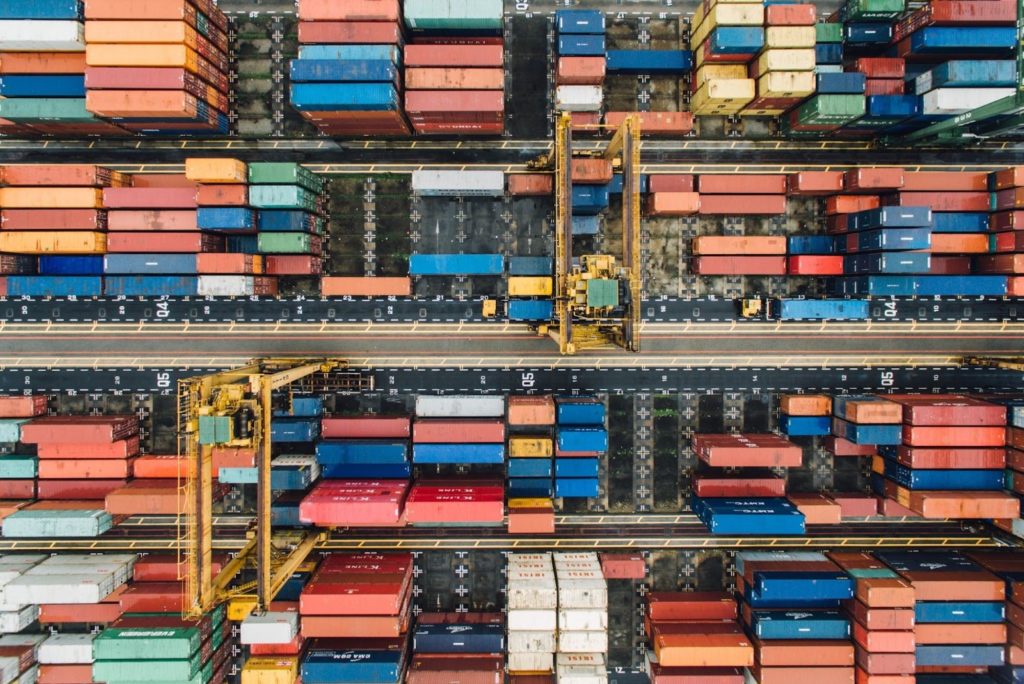
Supply chain issues have been well publicised – with a particular emphasis on the volatility in sea freight container prices and the knock-on effects for many businesses. Despite all the technological advances of the last 50 years, the fact remains that much of the world’s trade (over 80% in 2021, according to UNCTAD) is reliant on physically shipping products around the globe in container ships – largely controlled by 3 major alliances.
Current State of Play
Price Volatility
Covid and its knock-on effects caused significant volatility in container freight charges, with prices increasing 10x on certain routes. Whilst the causes for the price increases have been largely resolved, container prices and demand remain high.
Lack of Transparency & Accountability
The shipping industry is notorious for its lack of transparency which extends from container pricing to delivery schedules and transit times. In addition, given the number of players involved in the process (for example, freight forwarders, hauliers, shipping lines, customs, and port authorities), there is a lack of accountability when issues do arise.
Surcharges
Lack of transparency applies to the myriad of surcharges that can be applied to container shipping – demurrage, detention, port congestion, and driver retention to name a few. More often than not these charges end up being paid by the cargo owner, who has little understanding of what they are and why they should be paying.
And it’s not getting better…
Chinese ‘Zero-Covid Policy’
With city-wide lockdowns still being considered (and in some areas enforced), further disruption and price increases can’t be ruled out.
Ukraine Conflict
During Covid, rail services experienced massive growth. However, the suspension of most trans-Siberian railway services as a result of the conflict has transferred demand back to sea-based services.
Legislation
It is unclear what effect – if any – proposed legal action against shipping lines over excessive charges will have. The US has started proceedings, and investigations have also been initiated in many Asian countries. Now there’s pressure on the UK and EU to follow suit.
Port Workers Strike Threat
The strike action by port workers in Felixstowe will cause further disruption to UK businesses. With port workers across Europe, US and Asia all threatening similar action, there is potential for severe supply chain issues and further price volatility.
Given the unprecedented levels of disruption, how can businesses ensure they are getting the best value from their current providers?
The ERA Sea Freight Solution
Detailed analysis to provide clarity of cost in a
complex market
- Initial analysis includes all relevant costs; container freight, port charges, and haulage.
- Greater visibility on surcharges and how and when they are applied.
- Evaluate non-cost related factors; service reliability, booking process, and transit times.
- Highlight all opportunities for cost optimisation (container utilisation, exchange rates, incoterms, for example).
Quantify savings by benchmarking prices
- Use market-leading indices to benchmark actual spending against the market average for the same container size, route and date.
- Create a reference spread (difference between actual spend and market average) for all container sizes and routes of transit.
- Savings generated by ERA will be calculated against the reference spread over the term of the agreement, avoiding the influence of fluctuating prices.
Implement sustainable solutions
- On-going monitoring to ensure prices stay in line with the market.
- Transparency of costs and savings relative to the market.
- Leverage ERA Industry Expertise and Market to continually optimise sea freight expenditure.
Case Studies
Electronics retailer – in implementation
- Estimated savings of 11.2% versus incumbent supplier.
- Online portal for booking, allowing the live tracking of shipments.
Machine parts importer – in implementation
- Estimated savings of 12.6% vs incumbent supplier.
- Online portal for booking, allowing the live tracking of shipments. Optimised use of duty deferment account and postponed VAT, reducing charges and improving cash flow.